Advisory Board
The EUCalc Advisory Board is currently comprised of the following high-level experts selected for their experience, knowledge and relevance to the project:
Ulrike Lunacek
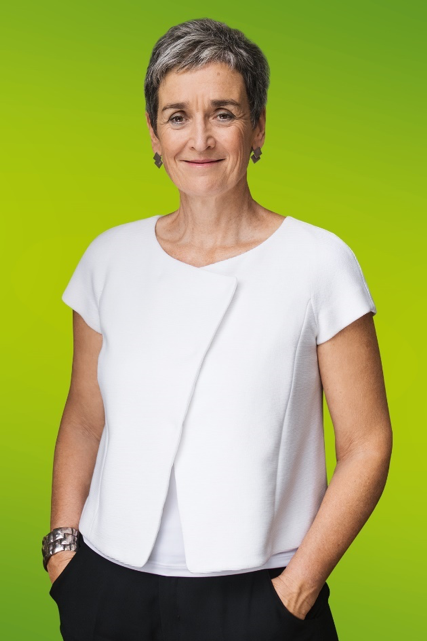 Until November 2017, Ulrike Lunacek was Vice President of the European Parliament and (2009-2017) a Member of the European Parliament for the Austrian Greens, with a focus on human rights and rule of law in foreign affairs, specifically on SouthEastern Europe, and the struggle against illiberal democracy tendencies inside the EU. She was Rapporteur for Kosovo for the European Parliament from 2009-2017 and a member of the EP-Delegations to Serbia, to Montenegro, and to Bosnia-Herzegovina.
Until November 2017, Ulrike Lunacek was Vice President of the European Parliament and (2009-2017) a Member of the European Parliament for the Austrian Greens, with a focus on human rights and rule of law in foreign affairs, specifically on SouthEastern Europe, and the struggle against illiberal democracy tendencies inside the EU. She was Rapporteur for Kosovo for the European Parliament from 2009-2017 and a member of the EP-Delegations to Serbia, to Montenegro, and to Bosnia-Herzegovina.
In 2017 she led the Austrian Greens into the general elections. After a difficult campaign, which did not bring the expected results, she resigned from all political functions, completed a book about her 8 years of experience as the EP’s rapporteur on Kosovo and is now working free-lance.
A trained interpreter (English/Spanish/German) and activist on feminist, development and ecological issues, Ulrike Lunacek (born 1957) was also a member of the Austrian Parliament from 1999-2009, focussing on Foreign Affairs, Development and Equal Rights for LGBTI.
Lars J. Nilsson (Lund University)
 Lars J. Nilsson is a Professor at the Division of Environmental and Energy Systems Studies at Lund University, Sweden and Project Coordinator of the H2020 sister project REINVENT (Realising Innovation in Transition to Decarbonisation). REINVENT explores decarbonisation pathways in four critical industries: steel, plastics, paper and food. www.reinvent-project.eu
Lars J. Nilsson is a Professor at the Division of Environmental and Energy Systems Studies at Lund University, Sweden and Project Coordinator of the H2020 sister project REINVENT (Realising Innovation in Transition to Decarbonisation). REINVENT explores decarbonisation pathways in four critical industries: steel, plastics, paper and food. www.reinvent-project.eu
Personal website: http://portal.research.lu.se/portal/en/persons/lars-j-nilsson(73370633-ed21-48e2-b083-f9be8bcf7fae).html
Dr Jan Ole Kiso (Department for Business, Energy and Industrial Strategy; UK Government)
 The UK Government is very supportive of the EUCalc project. The Calculator should be able to showcase in a clear and transparent manner the high level options for the energy transition across the EU, as well as how this can inform the EU’s and UK’s policy strategy. As the UK Government has gathered very positive experiences with their version of the Calculator, it is hoped that the EU Calc will have similar transformative impact on the EU.
The UK Government is very supportive of the EUCalc project. The Calculator should be able to showcase in a clear and transparent manner the high level options for the energy transition across the EU, as well as how this can inform the EU’s and UK’s policy strategy. As the UK Government has gathered very positive experiences with their version of the Calculator, it is hoped that the EU Calc will have similar transformative impact on the EU.
Dries Acke (European Climate Foundation, ECF)
 ECF is a major philanthropic organisation which promotes climate and energy policies that greatly reduce Europe’s greenhouse gas (GHG) emissions. Some of our key initiatives, such as the Roadmap 2050 project (www.roadmap2050.eu), have involved extensive ground-breaking modelling work and supported policy making at the European and member states level.
ECF is a major philanthropic organisation which promotes climate and energy policies that greatly reduce Europe’s greenhouse gas (GHG) emissions. Some of our key initiatives, such as the Roadmap 2050 project (www.roadmap2050.eu), have involved extensive ground-breaking modelling work and supported policy making at the European and member states level.
Paul Ekins (UCL Institute for Sustainable Resources)
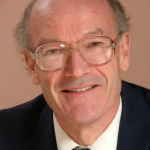 Director and Professor of Resources and Environmental Policy, H2020 project INNOPATH coordinator https://www.ucl.ac.uk/bartlett/sustainable/prof-paul-ekins.
Director and Professor of Resources and Environmental Policy, H2020 project INNOPATH coordinator https://www.ucl.ac.uk/bartlett/sustainable/prof-paul-ekins.
Laura Aylett (Department for Business, Energy and Industrial Strategy – BEIS, UK government)
 BEIS is very interested in what the EUCalc can show them about the options for the energy transition across the EU, and how this can inform the UK’s strategy.
BEIS is very interested in what the EUCalc can show them about the options for the energy transition across the EU, and how this can inform the UK’s strategy.
Ingolf Schädler (Ministry for Transport, Innovation and Technology, Austria)
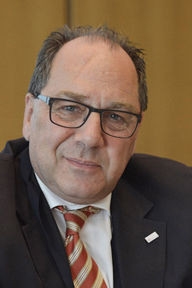 EUCalc will create necessary evidence and a platform for an informed and engaged debate around the decarbonisation of the European society. The evidence- based modelling tool will guide decision-makers on available options of energy technologies, priorities and investments.
EUCalc will create necessary evidence and a platform for an informed and engaged debate around the decarbonisation of the European society. The evidence- based modelling tool will guide decision-makers on available options of energy technologies, priorities and investments.
Dr Vincent van Steenberghe (Federal Public Service Health, Food Chain Safety and Environment, Belgium government)
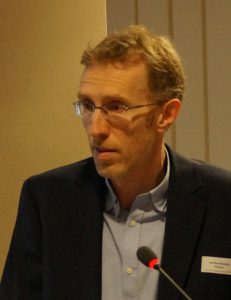 The Belgian Climate Change Section has developed since 2013 a similar tool at the Belgian level which is at the core of an initiative on the transition of Belgium towards a low carbon society by 2050. This initiative includes the development of long term scenarios under participative approaches, macroeconomic impact analyses and educational packages (www.climatechange.be/2050).
The Belgian Climate Change Section has developed since 2013 a similar tool at the Belgian level which is at the core of an initiative on the transition of Belgium towards a low carbon society by 2050. This initiative includes the development of long term scenarios under participative approaches, macroeconomic impact analyses and educational packages (www.climatechange.be/2050).
Matthew Tipper (Shell)
 As a major energy producer and supplier, Shell is very interested the insights that the EUCalc can give to the future of the energy system across European Union. Shell delivered 2 pathways into the Global Calculator (see DECC above) which were translations of Shell’s Oceans and Mountains scenarios allowing a significant level of cross-comparison and validation.
As a major energy producer and supplier, Shell is very interested the insights that the EUCalc can give to the future of the energy system across European Union. Shell delivered 2 pathways into the Global Calculator (see DECC above) which were translations of Shell’s Oceans and Mountains scenarios allowing a significant level of cross-comparison and validation.
Dr Stephan Singer (Chief Advisor Global Energy Policy, CAN)
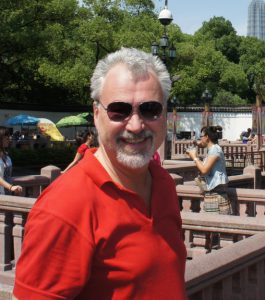 Dr Stephan Singer as is presently Chief Advisor Global Energy Policy working in the international secretariat for Climate Action Network (CAN), representing about 1300 Civil Society Organisations (CSO), local, national and international ones in all parts of the world. The arguably largest CSO network on a topic of global relevance comprises environmental, developmental, climate justice, scientific & academic, social and faith-based groups. CAN members work on all issues regarding climate change. Stephan is supporting all moves by governmental and other actors to comply with CAN and NGO positions to stay within the boundaries of the 1.5 C survival objectives by the ratified Paris Agreement on Climate Change and move to 100% renewable energy worldwide by mid-century latest to phase out fossil fuels and nuclear.
Dr Stephan Singer as is presently Chief Advisor Global Energy Policy working in the international secretariat for Climate Action Network (CAN), representing about 1300 Civil Society Organisations (CSO), local, national and international ones in all parts of the world. The arguably largest CSO network on a topic of global relevance comprises environmental, developmental, climate justice, scientific & academic, social and faith-based groups. CAN members work on all issues regarding climate change. Stephan is supporting all moves by governmental and other actors to comply with CAN and NGO positions to stay within the boundaries of the 1.5 C survival objectives by the ratified Paris Agreement on Climate Change and move to 100% renewable energy worldwide by mid-century latest to phase out fossil fuels and nuclear.
Stephan is a regular invited peer reviewer of the International Energy Agency`s (IEA) annual World Energy Outlook (WEO) and external and invited peer reviewer of IPCC documents with regard to mitigation as presently on the 1.5 C Draft. He also serves as co-chairperson in the board of the Renewable Grid Initiative (RGI), an alliance of progressive Transmissions System Operators (TSO) with CSO in Europe to maximise renewable electricity sustainably.
Before joining CAN, Stephan also worked for WWF International as Director Energy Policy and the German GIZ in India and Kenya on sustainable agriculture.
